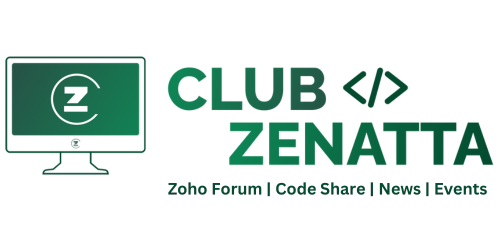As Zoho’s fastest-growing partner we have grown from a team of seven at the start of 2020 to over 20 people today.
But growing an organization this quickly can be dangerous. One of the pillars in our organization that is essential to our growth is culture. We were fortunate that our original leadership team, some without knowing it, had what we believe are the essential virtues to being an ideal team player. But everyone is different. How do you get the new hires to truly buy into your organization’s culture and more importantly work as a team? Because as you grow, one wrong hire could potentially spread like cancer, bringing the organization down.
What if we told you a book played a large role in helping us create our culture. If you don’t believe us we highly recommend you read, The Ideal Team Player: How to Recognize and Cultivate The Three Essential Virtues by Patrick Lencioni.
The book focuses on what it believes to be the three essential virtues of a team player – humble, hungry, and smart. We’d like to break down each and share the importance with you.
Humble
This is the simplest of the virtues and probably the most important. If you are egotistical, chances are you aren’t a team player. And even if you are, how does your ego affect the rest of the team? A team that is humble builds each other up by acknowledging and complimenting others’ successes. Admitting that it is ok if you don’t know everything and asking for help.
In our industry, if you are reading this you probably have some tie to the Zoho product suite. With all of the different applications, it is impossible for one person to know every answer and product inside and out. We wouldn’t be able to deliver the same experience to our clients if our team didn’t humble themselves to one another and ask for help when needed.
Hungry
Hungry describes one’s desire to push beyond what is required of them. For many a job is a paycheck, we do what is required nothing more, nothing less. Those that are hungry, go above and beyond pushing themselves to constantly improve personally and professionally. They have an innate desire to not only improve their skill set but figure out new ways to help improve the organization.
Our experience is having a team of hungry individuals is not only great for the organization, but for the individuals themselves. Since as a team, it allows these improvements also be shared amongst their peers, allowing everyone to grow and improve at an exponential rate. It also creates an atmosphere of healthy competition.
Smart
This virtue is not referring to one’s intelligence, but rather one’s street smarts. The ability to read the room and be socially aware and intuitive to others’ needs. Being mindful of your choice of words and actions depending on the given situation. Today this is also measured as EQ or emotional intelligence.
For us, our team members deal with all sorts of different clients and companies. Some are easier to deal with than others in the beginning. But, if you have the ability to read the room, what we discovered is eventually some of those that weren’t as easy to deal with initially become some of your favorite clients to work with. The same goes for our internal meetings and work, we all have bad days. Being able to identify those struggles is just as important.
Closing Thoughts
It is important to note that you still need to hire people with the necessary skill set to perform their jobs. And sometimes very talented individuals don’t have all three of these virtues. That is ok, no one is perfect. Transparency about your companies values is key.
When you have an organization built around these virtues, you’ll discover you’ve created a workplace that naturally has increased productivity and happiness. While also lowering turn-over and easing the stress of your HR department. And if you are wanting to grow your organization, having a quality culture is an important part of it.
If you haven’t read The Ideal Team Player yet, hopefully, it becomes the next book you pick up and read. And with any luck, the influence that it had on us, has the same influence on you whether as an individual or as an organization.









